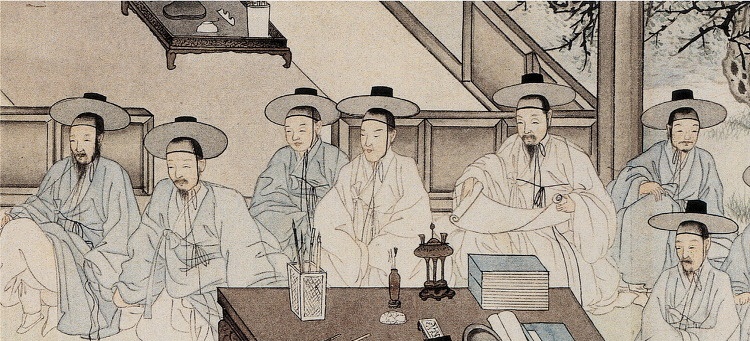Yashi Priya, Lucknow, Uttar Pradesh
The Korean system of speech levels and honorifics form a significant part of the communication in South Korea. Although it may depend on the closeness of the relationship among people, it majorly reflects the social status and age difference of the person or people being addressed since age and social status are considered important in conversations and everyday life in South Korea. This is why you’ll frequently hear Koreans ask your age when they first meet you as the use of informal speech or exemption of honorifics is frowned upon and considered very rude in Korean society.

Various forms of words, generally verb endings, are used to indicate respect and politeness towards seniors. The Korean language has different levels of speech. The most commonly practiced levels are formal, standard, and informal. Formal language is used to show respect, standard language is used for everyday speech, and informal language is used for people who share close relationships with each other. Sentences that end in -nida or -니다 and -seyo or -세요 show superior rank or elderly age status of the addressee. Let’s take an example of the verb Bangawo or 반가워 which translates to nice to meet you. Bangapsamnida or 반갑습니다 is its formal honorific form and Bangawoyo or 반가워요 is its standard honorific form. On the other hand, non-honorifics are simple, plain, and intimate conversation which ends with -a/-e to show the same age/rank status.
In some situations, even if the addressee is older than the speaker, the speaker can choose non-honorific speech to show their closeness. In a different situation where the speaker is angry, the speaker can choose polite speech to create a distance and to show the importance of the issue being talked about, even if they are close. Overall, the system of addressing and referring while talking in Korean is a little complicated due to its restrictions on the use of pronouns and personal names. Korean second-person pronouns do not appear in honorific conversation. Instead, professional titles and kinship terms are applied.
The most common kinship terms are Harabeoji or 할아버지 for grandfather, Halmeoni or 할모니 for grandmother, Ajumma or 아줌마 for aunt, Ahjusshi or 아저씨 for uncle, Abeoji or 아버지 for father, and Eomeoni or 어머니 for mother. It should be kept in mind that to refer, for example, your own grandfather, you can use harabeoji, but to address someone else’s grandfather, use harabeonim which is its honorific form, and -nim is added to show respect. Second person nouns used for siblings are Unni or 언니 used by females to older sister, Oppa or 오빠 used by females to older brother, Noona or 누나 used by males to older sister, and Hyung or 형 used by males to older brother.
In many formal situations, the name of the addressee is typically followed by the suffix -ssi or -nim. They are generally used in business settings such as workplaces and offices. Some common professional titles used are hoejang-nim or 회장님 for esteemed chairman, seonsaeng-nim or 선생님 for esteemed teacher, and sajang-nim or 사장님 for esteemed company president. To simply address older colleagues or seniors, sunbae-nim or 선배님 is used.

Every person in their social circle and outside is expected to behave in a certain way in South Korea according to their age and hierarchy. It’s important to show respect by following these expected protocols. I hope this article helped you to learn a bit about how to use honorifics and different verb forms and gave you an insight into what and how Korean culture is so that you can avoid offending South Korean people the next time you talk to them.
Watch this video to know more about Korean Honorifics system:

Very well written! Glad to know about the honorifics system.
It’s very well written piece of article which is so informative and we’ll discussed. Gives a lot of insights about how honorifics are so important in Korean culture!
👌👌👌✌👍💜
I’m still a beginner in Learning Korean and I guess this article will help me now for speech, Well written✨(◔‿◔)
Informative article!!….kudos to u
Wonderfully written…!!! Well done girl… 👍👍
Wonderfully written…!!! Well done girl.👍👌
Impressive…learned something new about honorifics of Korean culture.
This is written so well and explained the basics so properly! Good job👍